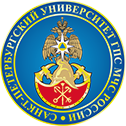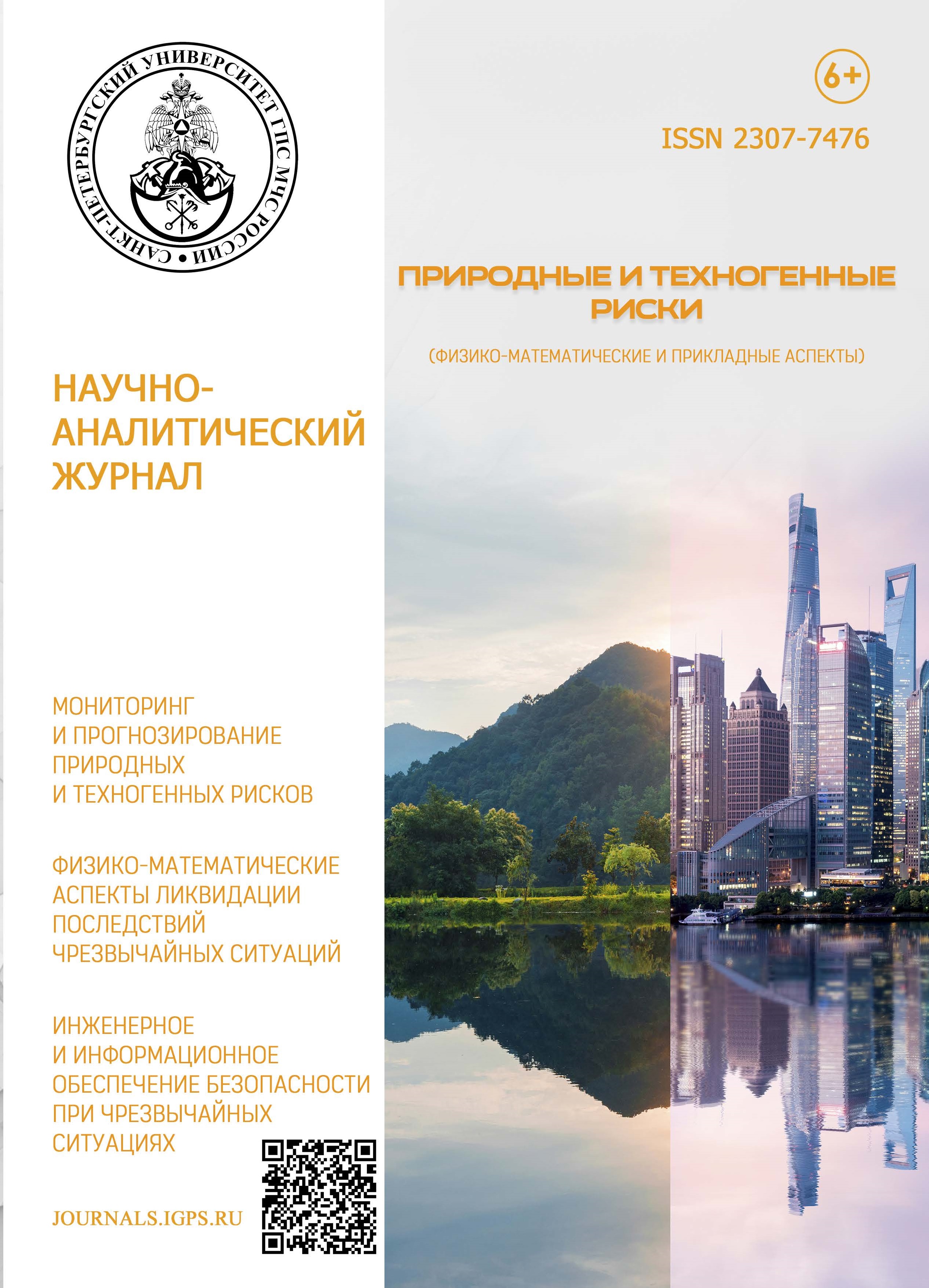This article discusses climatic factors from the point of view of having an adverse impact on workers whose professional activities are directly related to the performance of work in open areas, sites and on the street. The WBGT index was taken as a criterion for evaluating the external thermal load under the conditions under consideration on the worker's body. The results of calculating the integral indicator of the index were analyzed from the point of view of the presence of a relationship with changes in the level of health of workers. On the basis of this analysis, it was concluded that this index should be taken into account when conducting the SOUT in conditions when workers work on the street due to the specifics of work when they are exposed to heating climatic factors, that this indicator should be taken into account when purchasing by organizations and enterprises of personal protective equipment to meet specific weather conditions in the climatic zone where the work is carried out.
special assessment of working conditions, WBGT index, microclimate, thermal comfort, overheating
1. Yola L., Adekunle T.O., Ayegbusi O.G. The impacts of urban configurations on outdoor thermal perceptions: case studies of flat bandar tasik selatan and surya magna in kuala lumpur // Buildings. 2022. № 12 (10). DOI:https://doi.org/10.3390/buildings12101684.
2. Wearable sensor technology to predict core body temperature: a systematic review / C.M. Dolson [et al.] // Sensors. 2022. № 22 (19). DOI:https://doi.org/10.3390/s22197639.
3. New wearable thermoelectric cooling garment for relieving the thermal stress of body in high temperature environments / Li Z. [et al.] // Energy and Buildings. 2023. № 278. DOI:https://doi.org/10.1016/j.enbuild.2022.112600.
4. Medvedev V.I., Basalaeva A.A. Protivorechiya special'noj ocenki uslovij truda // Vestnik SGUPS: gumanitarnye issledovaniya. 2022. № 2 (13). S. 47-51.
5. Petrova E.V. Osobennosti provedeniya special'noj ocenki uslovij truda // E-Scio. 2022. № 8 (71).
6. Zhang Y., Jia J., Guo Z. Numerical investigation of heat transfer in a garment convective cooling system // Fashion and Textiles. 2022. № 9 (1). DOI:https://doi.org/10.1186/s40691-021-00276-3.
7. Analyzing environmental heat stress under changing work conditions: a sensor-based monitoring solution / M. Sharma [et al.] // Human Factors and Ergonomics in Manufacturing. 2022. № 32 (5). P. 389-405. DOI:https://doi.org/10.1002/hfm.20960.
8. Tailored WBGT as a heat stress index to assess the direct solar radiation effect on indoor thermal comfort / S. Mirzabeigi [et al.] // Energy and Buildings. 2021. № 242. DOI:https://doi.org/10.1016/j.enbuild.2021.110974.
9. Mahgoub A.O., Gowid S., Ghani S. Global evaluation of WBGT and SET indices for outdoor environments using thermal imaging and artificial neural networks // Sustainable Cities and Society. 2020. № 60. DOI:https://doi.org/10.1016/j.scs.2020.102182.
10. Yasmeen S., Liu H. Evaluation of thermal comfort and heat stress indices in different countries and regions: a review // Paper presented at the IOP Conference Series: Materials Science and Engineering. 2019. № 609 (5). DOI:https://doi.org/10.1088/1757-899X/609/5/052037.
11. Ibragimova Z.M. Vliyanie povyshennoj temperatury mikroklimata rabochego mesta na rabotosposobnost' rabotnika // Aktual'nye problemy stroitel'stva, ZHKKH i tekhnosfernoj bezopasnosti: materialy VI Vseros. (s mezhdunar. uchastiem) nauch.-tekhn. konf. molodyh issledovatelej / pod obshch. red. N.Yu. Ermilovoj, I.E. Stepanovoj. Volgograd: Volgogradskij gos. tekhnich. un-t, 2019. S. 179-180. EDN JZMTOS.
12. Ob utverzhdenii Metodicheskih rekomendacij po yuridicheskoj obrabotke normativnyh pravovyh aktov sub"ektov Rossijskoj Federacii, podlezhashchih vklyucheniyu v federal'nyj registr: prikaz Minyusta Ros. Federacii ot 25 dek. 2000 g. № 410. Dostup iz sprav.-pravovoj sistemy «Konsul'tantPlyus».
13. Kompleksnyj podhod k podboru special'noj odezhdy buril'shchika neftyanyh skvazhin s uchetom pokazatelya PMV / T.T. Kaverzneva [i dr.] // XXI vek: itogi proshlogo i problemy nastoyashchego plyus. 2022. T. 11. № 3 (59). S. 159-164. DOI:https://doi.org/10.46548/21vek-2022-1159-0024. EDN VBLXRP.
14. Kaverzneva T.T., Skripnik I.L., Ksenofontov Yu.G. Innovacionnoe napravlenie podgotovki vysokokvalificirovannyh kadrov inzhenerno-tekhnicheskogo profilya // Uchitel' sozdaet naciyu (A. Kadyrov): sb. materialov V Mezhdunar. nauch.-prakt. konf. Mahachkala - Groznyj: Izd-vo «ALEF», 2020. S. 63-66. EDN VMPWKD.
15. Kaverzneva T.T., Sycheva E.A. Razrabotka metodiki ocenki professional'nogo riska rabotnikov neftyanogo promysla // Bezopasnost' v chrezvychajnyh situaciyah: sb. nauch. Vseros. nauch.-prakt. konf. SPb.: S.-Peterb. politekhnicheskij un-t Petra Velikogo, 2018. S. 23-29.
16. Optimizaciya obucheniya i proverki znanij trebovanij ohrany truda s pomoshch'yu internet-tekhnologij / V.A. Senchenko [i dr.] // Bezopasnost' zhiznedeyatel'nosti. 2020. № 8 (236). S. 49-55.
17. Novye podhody v organizacii sistemy obucheniya i proverki znanij trebovanij ohrany truda v organizaciyah / V.A. Senchenko [i dr.] // Bezopasnost' i ohrana truda. 2020. № 1 (82). S. 73-76.
18. Senchenko V.A., Kaverzneva T.T. Obuchenie i proverka znanij po ispol'zovaniyu (primeneniyu) sredstv individual'noj zashchity kak otdel'nyj vid obucheniya // Ohrana truda i tekhnika bezopasnosti na promyshlennyh predpriyatiyah. 2022. № 4. S. 6-17. DOI:https://doi.org/10.33920/pro-4-2204-01. EDN KBRSYC.






